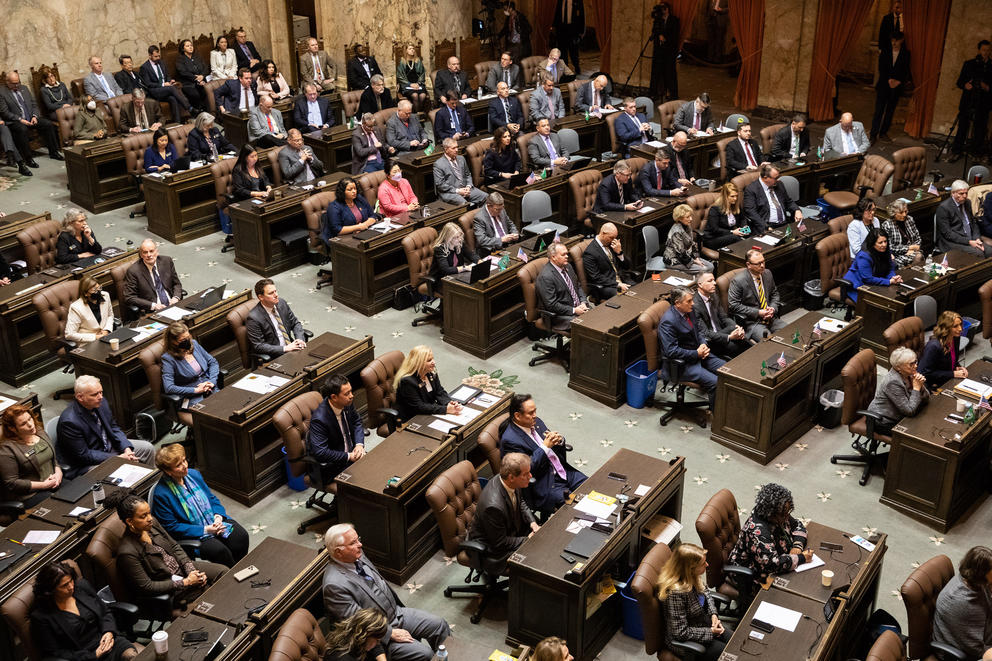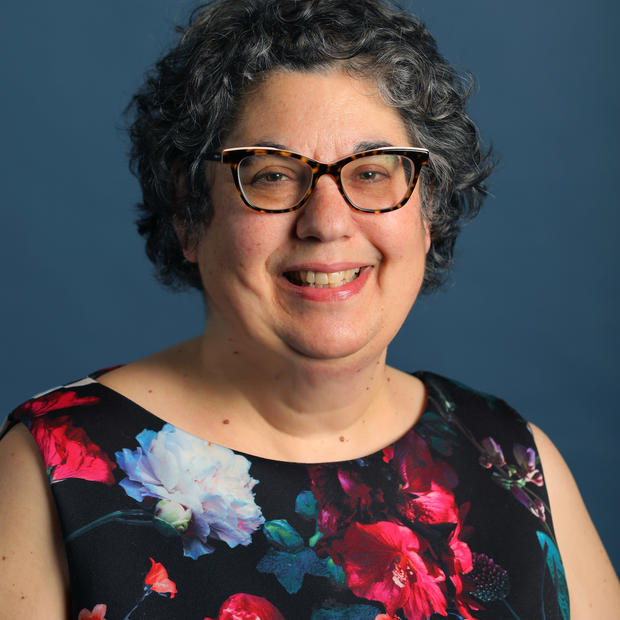The economy is voters’ No. 1 issue for the third straight year, with 32% of those polled citing some economic issue that they think the Legislature should focus on when it convenes next week – even though lawmakers will have more cash to spend this session than expected, because the state’s new capital gains tax and carbon pricing system brought in over $1 billion more than forecasted.
Pollster Stuart Elway says the disconnect between personal finances and “the economy” also shows up in national polls, because talking about the economy writ large is more of a political issue than personal finances. Both the economy and public safety are expected to be prominent in the political debate this election season, even though most people have not had personal experiences with either economic hardship or crime.
“Every time I have asked these questions since 1992 – 85 times – more people have been optimistic about their own household than for the country,” Elway said. But this time, the numbers are much more stark: a 26-point gap between optimism about people’s own household (60% chose this answer) and optimism about the country (chosen by 34%).
The latest Crosscut/Elway Poll was conducted between Dec. 26 and 28, with a mix of cell phone, landline, and online survey questions. It has a 5% margin of error at the 95% confidence level. That means that if the survey had been run 100 times, the results would be within five percentage points of these results in at least 95 of those scenarios.
Another way ideological disconnect showed up in this poll was in the priorities voters have for legislative action this session.
In one question, 57% said they would be in favor of repealing the state’s new capital gains tax. An initiative proposing that repeal will likely end up on the November ballot since lawmakers in the Democrat-controlled Legislature are not expected to act on the idea. The 7% tax applies to profits from the sale of stocks and some other capital assets that exceed $250,000.
In another question, 55% said they were in favor of spending a state surplus from that same capital gains tax – as well as the new cap-and-invest program – to put more money into schools, reducing homelessness, mental health programs and combating the effects of climate change. The other choices on that question were putting money into reserves (chosen by 7%), or cutting taxes (chosen by 30%).
Elway said Washington voters have historically always told pollsters they are in favor of spending all the money coming into state government accounts rather than cutting taxes or putting it into reserves. But the political divide on these policy priority questions has grown over recent years.
“Party identification has become such a determining factor, more than it has been for decades,” Elway said, noting several numbers in the poll to illustrate that point. Democrats strongly support spending more money on housing, while Republicans are largely opposed to the idea. A 56% majority of Republicans also said they favored cutting taxes, while only 10% of Democrats thought that was a good idea.
While Republicans in Washington poll similar to Republicans everywhere on wanting to tax less and spend less, this poll illustrated less-monolithic feelings on the Democrat side to some of these questions. For example, Democrats were split on repealing the capital gains tax (44% for repealing, 39% against).
Historical polling data shows Washingtonians have had a love/hate relationship with taxing capital gains. In January 2015, 58% of voters polled supported a proposal to establish a capital gains tax. In January 2021, 54% of voters opposed such a tax.
And in this survey, 57% favored repealing the capital gains tax, even though 84% wanted to put more money into mental health and drug programs; 75% wanted to give utility rebates to low- and middle-income households; and 66% want to spend more on housing programs.
Every year at this time, Crosscut asks voters what they think the Legislature should focus on. Those priorities have changed over time. For example, during the pandemic in 2021, dealing with COVID-19 was the top priority. Now it doesn’t even make the list generated by this open-ended question.
“I guess COVID is over or people are through with the pandemic,” Elway said.
Voters listed as their top priorities this year – and last – the economy, public safety, homelessness, taxes, government (including polarization, election security, democracy, less government and corruption), education and the environment.
The question on which voters from both parties were most decisive concerned government transparency and the state Public Records Act, which says state agency documents, including emails, should be available to the public. Some state lawmakers have been claiming something they call “legislative privilege,” exempting themselves from having to share some of their emails, texts and other communications when asked by the public or the media. But the Washington Supreme Court has ruled they are subject to the Public Records Act.
Voters who answered the most recent Crosscut/Elway Poll were clear: 82% said lawmakers should comply with public disclosure laws, 9% said legislators should be exempt and 8% had no opinion.
Next week, Crosscut will release the second half of its December/January poll, which will focus on voters’ opinions on the 2024 statewide election, including the race for governor.





